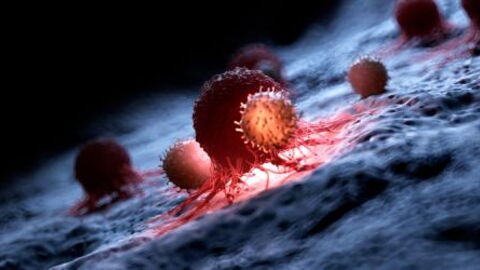This is a discovery that could well mark a turning point in the way cancer is treated. A new type of immune cell was discovered by British scientists on accident.
Discover our latest podcast
A universal treatment for cancer
Researchers at Cardiff University were testing blood for immune cells that can fight specific bacteria when they came across a new type of T-cell.
In their study published in the scientific journal Nature Immunology, the researchers explain that this new immune cell carries a novel receptor that enables it to attack cancerous cells, without touching healthy cells.
By attaching this receptor to other immune cells, it would allow them to attack cancers of the lung, skin, blood, colon, breast, bones, prostate, ovaries, kidneys and cervix.
Professor Andrew Sewell, one of the authors of the study, told The Telegraph that it was 'very unusual' to find a cell like this and that it could pave the way for new universal cancer therapies.
It was a fortuitous discovery, nobody knew that this cell existed. Our discovery opens the prospect of a "unique" anti-cancer treatment, a single type of T cell that could be capable of destroying many types of cancer in the population. Until now, no one thought it could be possible.
Human testing
Cancer therapies exist and immunotherapy is continuously being developed, but they only work for a limited number of cancers. This new approach would make it possible to have a universal treatment.
This is how this new method works: A blood sample is taken from a cancer patient and then the T-cells would be extracted and injected with this new receptor, which detects cancer cells and thus fights them.
For the moment, tests have only been carried out on mice or cells in the laboratory, but the results are promising. The researchers have discovered that in addition to destroying a patient's cancer cells, the cells modified with the new receptor could also destroy cancer cells in other patients.
A fantastic discovery which should be tested on humans before the end of the year and which, in addition to teaching us more about the human immune system, could pave the way for new treatments to cure many types of cancer.















